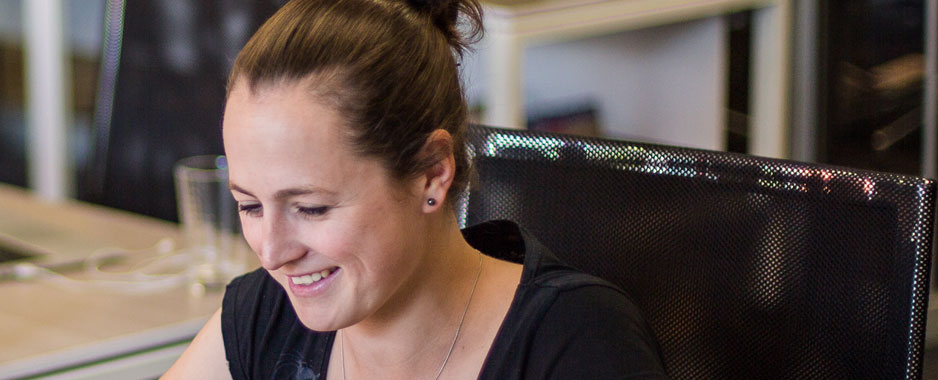
Mike Sharman, 28, is tall, stubble-faced and boasts an incredible cleft in his chin. “I wanted to be an actor,” he says by way of introduction. “But my old man pointed out that might not be the best idea in SA.”
Sharman isn’t an actor, though he briefly tried his hand at it despite his father’s remonstrations. Instead, he started a digital agency called Retroviral that’s gone from obscurity to landing huge clients in a short space of time.
“I did a marketing communications degree at what was then RAU [Rand Afrikaans University],” Sharman says. He liked the mixture of communications and business, having always been more inclined to his artistic side but realising the value of having at least some business acumen.
“I got to dabble in the audio-visual, in politics, business management and marketing, and picked up some sound business principles along the way.”
After he finished studying in 2005, Sharman went to the US to try his hand at acting. He headed to Los Angeles and took acting classes and an intensive eight-week stand-up comedy course that culminated in a show at West Hollywood’s well-known Ha Ha Café.
“Acting was fantastic from a personal branding perspective,” says Sharman. “Whether it’s business meetings or networking functions or just dealing with strangers, you have to put yourself out there and that’s something a lot of people and — more worryingly — entrepreneurs struggle with.”
Sharman says many entrepreneurs underestimate the importance of networking. “You’ve got to hustle. It’s uncomfortable for a lot of people, but a good idea goes nowhere unless you can tell it to people and, eventually, to the right people.”
 After returning to SA, Sharman wrote a one-man show and took it to the National Arts Festival in Grahamstown before deciding that an acting career wasn’t going to cut it. “If you want medical aid and a car, acting isn’t necessarily the most attractive career.”
After returning to SA, Sharman wrote a one-man show and took it to the National Arts Festival in Grahamstown before deciding that an acting career wasn’t going to cut it. “If you want medical aid and a car, acting isn’t necessarily the most attractive career.”
He started working for a start-up PR agency that was landing big clients. Sharman says it was a great lesson from a business perspective. “I don’t advise people to leave varsity and start their own business,” he says. “You need to experiment in a team, get insights into pricing structures, learn how you sell a service product as opposed to a physical one, and you get to meet all sorts of interesting, talented and successful people you might not on your own.”
Sharman says he could never have started Retroviral if he hadn’t learnt what he did working for someone else. “It all combined to show me how important it is to have an understanding of the PR of your own business. No matter what you produce from a communications perspective, if it’s fluffy it won’t get eyeballs.”
According to Sharman, any advertisement or corporate communication “has to support the business or drive website traffic or sell more products or whatever it is the company is trying to achieve.”
It’s crucial, he says, for anyone working in the digital realm to realise journalists and agencies aren’t the only important people to reach anymore.
“It’s not just journalists; it’s bloggers, prominent Twitter or LinkedIn users and other influencers that all have to be considered. There are more channels, but they all require the same principles.”
He says the most important thing is to get the right content to the right people, which can then generate viral results. He says companies cannot force campaigns on consumers, particularly those where they want interaction.
“That’s what was so good about the Obama [election] campaign,” he says. “It had a narrative, a story and a slogan, all of which resonated.”
After his stint in PR, Sharman headed to the UK where he worked for an agency trying to get start-ups into people’s minds. He then worked at Symbian on a project that created an online community for “hardcore techies” where users could submit queries, the techies would supply bug fixes and the community would then vote on those, with the best being forwarded to the Symbian council.
“We were allowing consumers to make improvements to something by ‘crowd-sourcing’ problems and solutions from real people. We got to marry consumers and techies which seemed an unlikely combination.”
It was at this stage, and with news of the Seacom cable and improved broadband services in SA, that Sharman decided to return to the country and try his hand at his own company.
“I started planning to start Retroviral towards end of 2009,” Sharman says. “Entrepreneurship looks glamourous on the outside, especially when you think of the likes of [Mashable’s] Pete Cashmore, but there are hours of slog.”
Sharman held down a full-time job and planned his own business at night. He says one of the greatest challenges was getting people to put faith in him with nothing to show other than his previous experience at other companies.
His former employer offered him office space, which he says is indicative of his experience of entrepreneurs being eager to support each other.
 “Some entrepreneurs get into the always-on, working-in-boxers, eating-badly mindset. I recommend routine for entrepreneurs. There will be times you have to work all the time because you’re the boss, but you have to set parameters otherwise it’ll mess with the rest of your life, too.”
“Some entrepreneurs get into the always-on, working-in-boxers, eating-badly mindset. I recommend routine for entrepreneurs. There will be times you have to work all the time because you’re the boss, but you have to set parameters otherwise it’ll mess with the rest of your life, too.”
He says following your dream doesn’t have to be a burden.
Retroviral landed some work for Absa’s digital channels, then for SABMiller on a campaign for Miller beer, and things started to take off from there. He says it’s crucial for any start-up to remember that your credibility is only as good as your last job and that you always have to deliver.
“You also have to take the chances that come your way,” he says. One such opportunity came when Sharman got a chance to meet with the Nando’s marketing team. “They said to us ‘you say you’re good, prove it’.”
At the time, now-suspended ANC Youth League leader Julius Malema was talking about shutting down Twitter, so Retroviral got the chance to digitally seed a poster from Nando’s creative agency — Blackriver FC — that simply said, “WTF Juju? LOL”. Despite launching the campaign on a Friday afternoon, the poster had more than 3 000 hits in its first weekend and got picked up by a number of sizeable local blogs.
Retroviral then got roped into Nando’s Christmas campaign, which took a dig at Cell C. “It was the best brief ever. Basically, they told us: ‘Make us fucking famous on the Internet’.”
In less than five days, the campaign received in excess of 100 000 views. “If your premise is global enough, expats pick up on it, and the Nando’s brand is loved in the UK and Australia, which also helped.”
Retroviral has since helped seed various Nando’s campaigns, including the controversial “Last Dictator Standing” campaign.
Nando’s “Last Dictactor Standing” campaign (via YouTube):
http://www.youtube.com/watch?v=u1EX–vdxh4
Sharman says one of the challenges of digital media is “trackability”, where figures can be monitored in a way they can’t for traditional broadcast media. “You can’t overpromise because you might well under deliver. If you up-sell you have to be able to back it up.”
He says SA companies have to realise Internet penetration is far lower than television and radio and, as a result, businesses targeting online can’t expect the same media spend, despite the fact that producing a video for online use costs no less.
“It’s often difficult to lead with an online campaign,” he says. “You need to lead with print or radio or TV, with online as support.” He adds that it’s important to realise not every platform suits every campaign.
He says results are often “qualitative, not quantitative”. Sharman is also aware of the fact that digital agencies like Retroviral may have a limited lifespan with more companies moving their social media management and digital presence online. “Sometimes in-house is best because you know your business best.”
Sharman recently became engaged to 5fm DJ Kim Schulze, who he got to know through Twitter. “We eventually met through mutual friends, but things started on Twitter. I heard her singing a Britney Spears song on her show as if it was about her. Being the narcissist that I am, I have a song I sing about myself, too, and we got chatting over that.”
The one piece of technology Sharman says he can’t live without is what he calls his “GuyPhone”. He’s had one since the 3GS, and says that’s where the name comes from. “In the early days, the iPhone couldn’t multitask. Then Apple went and upgraded the operating system and ruined the joke, but the name stuck.” — Craig Wilson, TechCentral
- Subscribe to our free daily newsletter
- Follow us on Twitter or on Google+ or on Facebook
- Visit our sister website, SportsCentral (still in beta)




